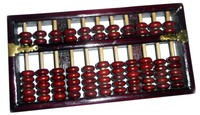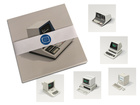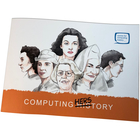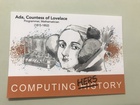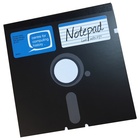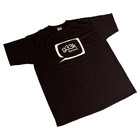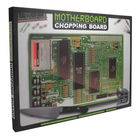Abacus
| Home > Browse Our Collection > Calculators > Mechanical Calculators > Abacus |
|
The abacus (plural abaci or abacuses), also called a counting frame, is a hand-operated calculating tool used since ancient times. Today, abaci are often constructed as a bamboo frame with beads sliding on wires, but originally they were beans or stones moved in grooves in sand or on tablets of wood, stone, or metal. The abacus was in use centuries before the adoption of the written modern numeral system and is still widely used by merchants, traders and clerks in Asia, Africa, and elsewhere. The user of an abacus is called an abacist. Manufacturer: Red Lion This exhibit has a reference ID of CH30276. Please quote this reference ID in any communication with the Centre for Computing History. |
|


